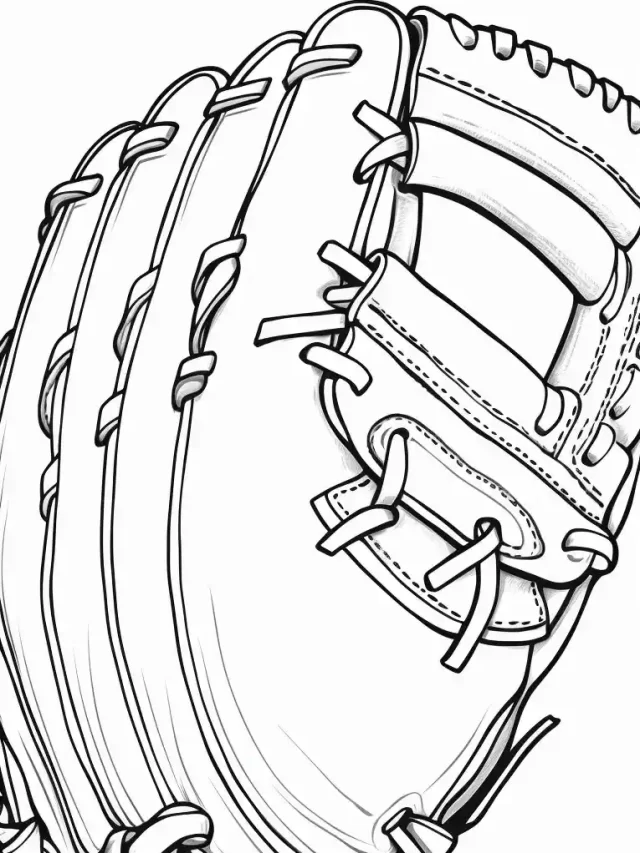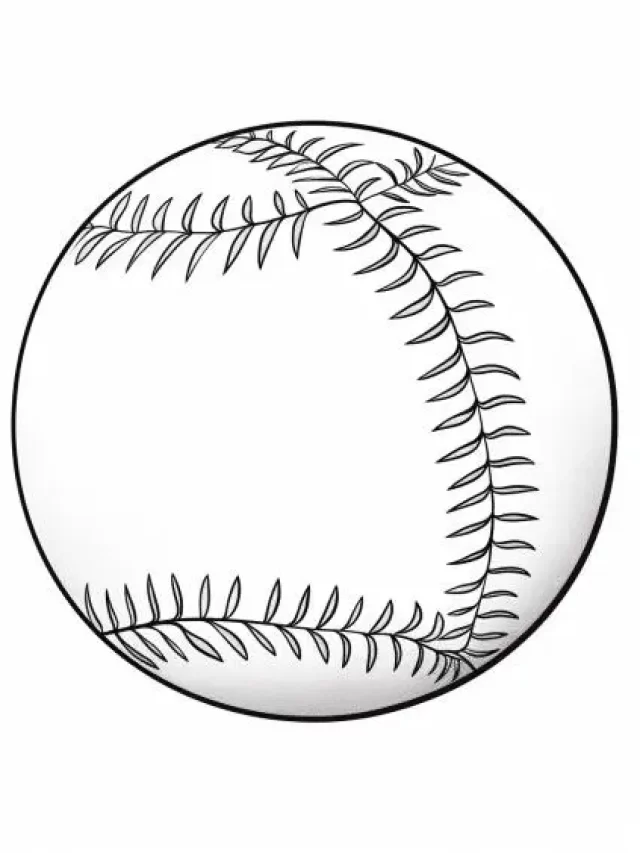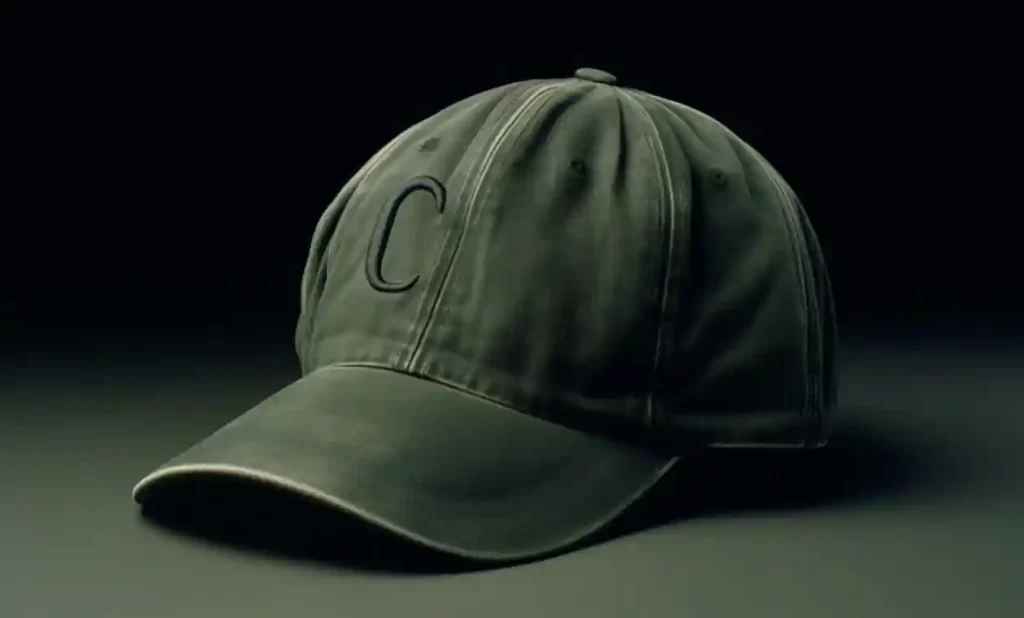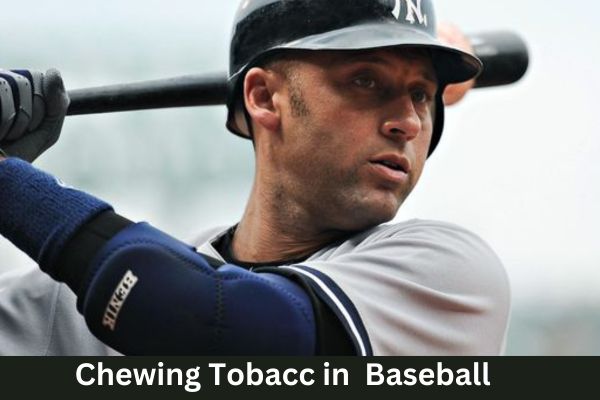 Image Credit-Pinterets
Image Credit-Pinterets
Baseball players chewing tobacco is a deeply rooted tradition in the sport, steeped in cultural significance and historical context. Originating in the late 19th century, the act of chewing tobacco became synonymous with the sport, evolving into a ritualistic practice for players on and off the field. The tradition gained prominence during a time when tobacco use was more widespread, reflecting the societal norms of the era.
In the early days of baseball, players engaged in tobacco chewing as a means of stress relief and focus during intense games. It became a shared camaraderie, fostering a sense of unity among teammates. The act of packing a cheek with chewing tobacco became an iconic image associated with the gritty determination and toughness of baseball players.
The cultural significance of tobacco chewing in baseball is intricately tied to notions of resilience and the unwavering spirit of the game. Players often viewed it as a personal superstition, believing it brought good luck or enhanced their performance. However, as societal attitudes towards tobacco evolved, so did perspectives within the baseball community.
Despite its historical prominence, the tradition has faced criticism due to health concerns, leading to shifts in player habits and increased awareness. Today, the act of chewing tobacco remains a symbol of baseball’s rich history, encapsulating the enduring traditions and cultural tapestry woven into the fabric of America’s favorite pastime.
Why Do Baseball Players Chew Tobacco?
“Why Do Baseball Players Chew Tobacco?” is a question that delves into the multi-faceted reasons behind a tradition deeply ingrained in the sport’s history. The act of chewing tobacco among baseball players goes beyond a mere habit; it is a practice intertwined with rituals, stress relief, and a quest for enhanced focus during the game.
Chewing tobacco has become a ritualistic aspect of the baseball experience. Many players adopt the habit as a pre-game routine, viewing it as a personal superstition that brings good luck. This ritual connects players to the longstanding traditions of the sport, creating a sense of continuity with the baseball legends who also participated in this tradition.
The high-pressure environment of a baseball game, with its intense moments and critical plays, can induce stress among players. Chewing tobacco has historically been a coping mechanism for stress relief. The rhythmic act of packing a cheek with tobacco becomes a calming ritual, helping players manage nerves and maintain composure during crucial moments.
Baseball is a game of precision and split-second decisions. Players often turn to chewing tobacco to enhance their focus and concentration on the field. The nicotine in tobacco can act as a stimulant, providing a temporary boost in alertness and cognitive function. For some players, this heightened state of awareness is seen as a performance-enhancing aspect during gameplay.
Chewing tobacco has fostered a sense of camaraderie among teammates, creating a unique bond within the baseball community. Sharing a dip or offering a teammate a pinch of tobacco has been a traditional gesture, symbolizing unity and brotherhood within the team. This shared experience contributes to the close-knit relationships that define baseball teams.
While these reasons shed light on the historical context, it’s essential to recognize that perspectives on tobacco use have evolved. Health concerns associated with chewing tobacco have led to a decline in this practice. Players, organizations, and the league itself have taken steps to discourage tobacco use, emphasizing healthier alternatives.
In essence, the act of chewing tobacco in baseball is a nuanced tradition with deep-rooted cultural, psychological, and social dimensions. Understanding its historical significance provides insight into the complex tapestry of rituals woven into the fabric of America’s favorite pastime.
Impact on MLB Players
Impact on MLB Players: Navigating Tobacco Regulations and Current Trends
Chewing tobacco, once an integral part of the baseball culture, has undergone significant scrutiny and regulation within Major League Baseball (MLB). This section delves into the evolving landscape of MLB regulations on tobacco use, shedding light on the current status and statistics regarding players who still engage in this age-old tradition.
MLB Regulations on Tobacco Use
Over the years, MLB has implemented and strengthened regulations to address the health risks associated with tobacco use among players. The league recognizes its responsibility to promote a healthy environment for athletes and fans alike. Key regulations include:
- Ban on Smokeless Tobacco: MLB prohibits the use of smokeless tobacco during televised interviews, autograph signings, and team-sponsored events.
- Restrictions in Minor Leagues: In efforts to discourage tobacco use among aspiring players, the ban extends to the minor leagues, signaling a commitment to shaping healthier habits from the grassroots.
- Educational Programs: MLB collaborates with players’ unions to conduct educational programs, emphasizing the dangers of tobacco use and providing resources for quitting.
Current Status and Statistics
Despite these regulations, the prevalence of tobacco use among MLB players persists, albeit at a reduced rate. Several factors contribute to the ongoing practice, including:
- Grandfathered Players: Some veteran players who entered the league before the implementation of stringent regulations may still choose to chew tobacco, having been grandfathered into less restrictive rules.
- Personal Choice: While MLB has taken significant strides to discourage tobacco use, it remains a personal choice for players. The allure of tradition, personal superstitions, or stress relief still influences some athletes.
Statistics on Tobacco Use
Tracking the exact prevalence of tobacco use among MLB players is challenging due to the private nature of the habit. However, surveys and anecdotal evidence suggest a decline in recent years. MLB’s collective bargaining agreements and health initiatives contribute to an environment where players are increasingly conscious of the risks associated with tobacco use.
In essence, the impact of MLB regulations on tobacco use is a dynamic interplay between tradition, personal choice, and the league’s commitment to player health. While strides have been made to curb the habit, the journey towards creating a tobacco-free baseball culture continues, reflecting a broader societal shift towards healthier lifestyles.
The Shift to Alternatives: Baseball Players Embrace Sunflower Seeds
As Major League Baseball (MLB) continues its efforts to discourage tobacco use among players, a notable shift has emerged—baseball players are increasingly turning to sunflower seeds as a healthier alternative. This section explores the trends behind this transition, examining why sunflower seeds have become the go-to choice and comparing the effects and health considerations associated with this shift.
Trends in Choosing Sunflower Seeds
- Health Consciousness: A key driver behind the shift to sunflower seeds is the growing awareness of the health risks associated with tobacco use. Players, teams, and the league itself have prioritized initiatives to promote healthier habits, and sunflower seeds have become a symbol of this conscious effort.
- Cultural Shift: As societal attitudes towards tobacco have evolved, so too have the cultural norms within the baseball community. Younger players, especially those entering the league in recent years, are more likely to adopt sunflower seeds as a cultural shift away from traditional tobacco use.
- Team Dynamics: The communal aspect of sharing sunflower seeds in the dugout fosters a sense of camaraderie among teammates. The crackling sound of shells being cracked becomes a familiar backdrop during games, contributing to the unique auditory experience of baseball.
Comparing Effects and Health Considerations
- Oral Health Impact: Unlike tobacco, sunflower seeds pose minimal risk to oral health. Chewing on seeds can stimulate saliva production, potentially reducing the risk of dry mouth, a common concern associated with tobacco use.
- Nicotine Content: Sunflower seeds do not contain nicotine, eliminating the addictive substance present in tobacco. This absence makes sunflower seeds a safer alternative, eliminating concerns related to dependency.
- Caloric Intake: While sunflower seeds are a nutritious snack, it’s essential to note their caloric content. Players opting for seeds should be mindful of their overall caloric intake, considering the additional energy provided by these small yet energy-dense snacks.
- Team Image: Embracing sunflower seeds aligns with a positive team image, reflecting a commitment to healthier choices. Teams are increasingly encouraging alternatives that promote well-being, shaping a more health-conscious perception among players and fans.
The shift to sunflower seeds as an alternative to tobacco represents a positive transformation within the baseball community. Players are not only making choices aligned with their well-being but also contributing to a cultural shift that promotes healthier habits both on and off the field. As sunflower seeds continue to replace tobacco in dugouts, they become a symbol of the evolving dynamics within America’s favorite pastime.
Health Consequences of Chewing Tobacco
Chewing tobacco, a once prevalent practice in baseball, carries substantial health risks that extend beyond the field. This section provides an in-depth exploration of the detrimental effects on oral health and overall well-being associated with tobacco use. Additionally, it recounts the stories of players who have faced significant health challenges due to their engagement in this age-old tradition.
Detailing Harmful Effects on Oral Health
- Oral Cancer Risk: Chewing tobacco is a well-established risk factor for oral cancer. The harmful chemicals present in tobacco can lead to the development of cancerous lesions on the lips, tongue, gums, and the lining of the mouth.
- Gum Disease: The abrasive nature of tobacco and its byproducts can irritate the gums, leading to inflammation and an increased risk of gum disease. This can result in symptoms such as bleeding gums, persistent bad breath, and even tooth loss.
- Tooth Decay: Chewing tobacco often involves the use of sweetened or flavored products, contributing to increased sugar intake. Combined with the stickiness of tobacco, this creates an environment conducive to tooth decay and cavities.
- Leukoplakia Formation: Tobacco use can cause the development of leukoplakia, white patches inside the mouth that can become precancerous. These lesions may lead to more severe oral health issues if not addressed promptly.
Stories of Players Facing Health Issues
- Tony Gwynn: The legendary Tony Gwynn, widely regarded as one of the greatest hitters in baseball history, attributed his oral cancer diagnosis to years of chewing tobacco. Gwynn battled cancer for several years before his untimely death in 2014, becoming a poignant example of the real health consequences associated with the habit.
- Curt Schilling: Former pitcher Curt Schilling, a three-time World Series champion, publicly shared his struggle with oral cancer, emphasizing the toll that tobacco use took on his health. Schilling underwent treatment and has since become an advocate against tobacco in baseball.
- Bill Tuttle: A former outfielder, Bill Tuttle, developed oral cancer attributed to his long-term use of chewing tobacco. Tuttle’s experience serves as a cautionary tale, highlighting the potential life-altering consequences associated with this seemingly innocuous habit.
These stories underscore the profound impact of chewing tobacco on the lives of baseball players. Beyond statistics and regulations, the personal narratives of these athletes serve as powerful reminders of the urgent need to address the health implications associated with this deeply entrenched tradition. Baseball’s journey towards a healthier future involves acknowledging these risks and actively promoting alternatives that prioritize the well-being of players both during their careers and beyond.
Nicotine’s Influence on Baseball Performance
The use of nicotine, prevalent in chewing tobacco, introduces a complex dynamic to a baseball player’s performance. This section delves into the intricate relationship between nicotine and gameplay, offering insights into how this stimulant affects concentration, reaction time, and the overall athletic performance of baseball players.
- Nicotine as a Cognitive Enhancer: Stimulant Properties: Nicotine is a well-known central nervous system stimulant. In small doses, it can enhance alertness, focus, and cognitive function, making it appealing to athletes seeking a performance boost.
- Impact on Concentration: Enhanced Focus: Players often turn to nicotine to sharpen their concentration during the game. It can provide a heightened sense of awareness, allowing athletes to stay mentally engaged and focused on the intricacies of the game.
- Effect on Reaction Time: Speed and Responsiveness: Nicotine’s stimulating effects may contribute to improved reaction time. In a sport like baseball, where split-second decisions and quick reflexes are crucial, players may perceive nicotine as a way to gain a competitive edge in reacting to pitches, fielding, or base running.
Overall Performance Considerations
- Balancing Act: While nicotine may offer short-term cognitive benefits, the challenge lies in striking a balance. Excessive nicotine intake or dependency can lead to adverse effects, potentially compromising physical health and long-term performance.
Risk of Dependence
- Addictive Nature: Nicotine’s addictive properties pose a significant risk to players. The pursuit of enhanced performance can inadvertently lead to dependency, with players relying on nicotine to maintain a perceived edge on the field.
Navigating Regulations
- MLB Guidelines: Major League Baseball (MLB) has implemented regulations to address the use of nicotine and other substances. Players must navigate these guidelines, recognizing the potential consequences of violating league policies.
Shifting Perspectives
- Awareness and Alternatives: As awareness grows regarding the health risks and ethical considerations associated with nicotine use, players are increasingly exploring alternative methods to enhance performance. This may include adopting healthier habits, mental conditioning, and sports psychology techniques.
Balancing Health and Performance
- Long-Term Implications: While the short-term benefits of nicotine use may seem appealing, players are increasingly cognizant of the potential long-term health implications. Striking a balance between performance enhancement and overall well-being becomes a pivotal consideration.
The relationship between nicotine and baseball performance is nuanced, with players weighing the immediate cognitive benefits against the potential risks and ethical considerations. As the landscape evolves, players, teams, and the league must collaboratively navigate this complex terrain, fostering an environment that prioritizes both the physical and mental well-being of athletes. The pursuit of excellence should align with a commitment to long-term health and the integrity of the game.
Changing Perspectives: Evolving Narratives on Tobacco Use in Baseball
The narrative surrounding tobacco use in baseball is undergoing a transformative shift as players, teams, and the baseball community as a whole increasingly embrace healthier choices. This section explores the changing perspectives through interviews and quotes from players who have quit or never adopted the tobacco-chewing habit, shedding light on the shifting attitudes and growing awareness within the baseball community.
Quitting the Habit: Personal Narratives
- Tony Gwynn Jr.: “My dad’s battle with cancer was a wake-up call. I quit chewing tobacco to prioritize my health and set an example for future generations of players.”
- Curt Schilling: “Dealing with oral cancer changed my perspective. It’s not just about performance—it’s about quality of life. I’ve quit, and I encourage others to do the same.”
Players Who Never Adopted the Habit
- Buster Posey: “I’ve never chewed tobacco. I want to focus on playing the game and being a role model for young fans. It’s about making choices that align with a healthy lifestyle.”
- Mike Trout: “I grew up watching players chew, but it never appealed to me. Staying tobacco-free is my choice, and I encourage others to consider the impact on their health.”
Shifting Attitudes and Team Policies
- Team Initiatives: Baseball teams are taking proactive steps to discourage tobacco use. Many organizations implement strict policies, provide resources for quitting, and create a culture that prioritizes player health.
- Educational Programs: The MLB, in collaboration with players’ unions, conducts educational programs that emphasize the risks of tobacco use. This has contributed to a broader understanding among players about the potential consequences.
Community Awareness Campaigns
- Public Service Announcements: The baseball community engages in public service campaigns to raise awareness about the dangers of tobacco use. Players participate in campaigns, leveraging their influence to encourage fans and aspiring athletes to make healthier choices.
Youth Outreach Programs
- Engaging the Next Generation: Baseball players actively participate in youth outreach programs, visiting schools and Little League teams to share their stories and promote healthy habits. This contributes to a cultural shift at an early age.
MLB’s Impactful Initiatives
- Influence of League Policies: The MLB’s commitment to creating a tobacco-free culture is reflected in its policies and initiatives. The league’s influence plays a crucial role in shaping the broader narrative and encouraging players to prioritize their health.
Cultural Evolution within Clubhouses
- Peer Influence: As more players choose to quit or abstain from tobacco use, peer influence within clubhouses becomes a powerful factor. The idea that success and camaraderie can be achieved without chewing tobacco gains traction.
Promoting Alternatives
- Embracing Healthier Choices: Baseball players increasingly promote alternatives to tobacco, such as sunflower seeds and gum. These alternatives not only contribute to a healthier lifestyle but also maintain the communal aspect within the team.
In essence, the changing perspectives on tobacco use in baseball are marked by personal stories of resilience, proactive team policies, community engagement, and the overarching influence of MLB’s commitment to fostering a healthier culture. As awareness spreads and attitudes continue to evolve, baseball is transitioning towards a future where the tradition of tobacco use is replaced by a collective commitment to well-being and longevity within the sport.
MLB’s Initiatives and Regulations: Pioneering a Tobacco-Free Culture in Baseball
Major League Baseball (MLB) has taken significant strides to discourage tobacco use among its players, coaches, and personnel. This section provides an in-depth look at MLB’s initiatives and regulations, highlighting the league’s commitment to fostering a healthier culture and an overview of existing policies, including any recent changes.
Historical Context
- Early Acknowledgment: MLB’s acknowledgment of the health risks associated with tobacco use dates back several decades. Initial awareness efforts focused on educating players about the dangers.
Smokeless Tobacco Ban
- Ban on Televised Interviews: One of the early measures was the prohibition of smokeless tobacco use during televised interviews, limiting the visibility of the habit to fans and setting a precedent for responsible public image.
Extension to Minor Leagues
- Creating a Holistic Approach: The MLB extended the ban on smokeless tobacco to minor league players, emphasizing the league’s commitment to cultivating a tobacco-free culture at the grassroots level.
Educational Programs
- Partnerships with Players’ Unions: Collaborating with players’ unions, MLB initiated educational programs designed to inform players about the health risks of tobacco use. These programs offer resources and support for those looking to quit.
Enhanced Policies in Collective Bargaining Agreements
- Stricter Regulations: Through collective bargaining agreements with players’ unions, MLB continuously refines its policies on tobacco use. Stricter regulations and clearer guidelines have been implemented over the years.
Ban in Clubhouses and Dugouts
- Creating a Tobacco-Free Environment: MLB expanded the ban on tobacco use to include clubhouses and dugouts, creating a comprehensive tobacco-free environment during games and practices.
Public Service Campaigns
- Raising Fan Awareness: MLB actively engages in public service campaigns to raise awareness among fans about the risks of tobacco use. Players participate in these campaigns, reinforcing the league’s commitment to responsible image promotion.
Recent Changes and Ongoing Evaluations
- Adapting to Evolving Challenges: MLB remains adaptive to emerging challenges. Recent changes in policies are reflective of ongoing evaluations of the effectiveness of existing regulations and a commitment to staying ahead of evolving trends.
Incorporating Alternatives
- Encouraging Healthier Choices: The MLB actively encourages players to adopt healthier alternatives to tobacco, such as sunflower seeds and gum. This not only aligns with the league’s health initiatives but also contributes to the positive communal aspects within teams.
Player Support and Advocacy
- Player Involvement: Many players actively support the MLB’s initiatives and serve as advocates against tobacco use. Their involvement in promoting healthier choices contributes to a cultural shift within the baseball community.
In conclusion, MLB’s initiatives and regulations reflect a dedicated commitment to creating a tobacco-free culture within the sport. By implementing comprehensive policies, engaging in educational programs, and actively involving players in advocacy, the league is at the forefront of fostering positive change and prioritizing the health and well-being of its athletes. As the landscape evolves, MLB’s ongoing efforts will continue to shape the narrative surrounding tobacco use in baseball.
The Role of Sunflower Seeds: A Cultural Shift in Baseball Tradition
In recent years, sunflower seeds have emerged as a popular alternative to chewing tobacco in baseball, signifying a cultural shift within the sport. This section explores why some players opt for sunflower seeds, delving into the cultural aspects and the emergence of new traditions associated with this seemingly small yet significant change.
Healthier Lifestyle Choices
- Nutritional Benefits: Sunflower seeds offer a healthier snacking option compared to tobacco. Rich in healthy fats, protein, and various nutrients, they provide players with energy without the adverse health effects associated with tobacco.
Oral Health Considerations
- Reduced Oral Risks: Unlike tobacco, sunflower seeds do not pose the same risks to oral health. The act of chewing seeds can even promote saliva production, potentially mitigating dry mouth concerns associated with tobacco use.
Symbol of a Health-Conscious Culture
- Shifting Cultural Norms: Choosing sunflower seeds over tobacco has become symbolic of a health-conscious and progressive baseball culture. Players embracing this shift contribute to reshaping the image and expectations within the baseball community.
Communal Aspect in the Dugout
- Shared Experience: The act of cracking and spitting sunflower seeds has become a communal experience in baseball dugouts. The distinct sound of shells cracking is a familiar backdrop during games, fostering a sense of camaraderie among teammates.
New Rituals and Superstitions
- Embracing Change: Sunflower seeds have given rise to new rituals and superstitions within the baseball community. Players develop unique routines around seed consumption, contributing to a sense of individuality and personalization of game-day preparation.
Influence of Younger Generations
- Youthful Trendsetters: Younger players entering the league are more likely to adopt sunflower seeds over tobacco, setting a trend that aligns with contemporary health and wellness values. This generational shift influences established players and contributes to the overall cultural change.
Team Bonding and Shared Rituals
- Building Team Unity: The shared consumption of sunflower seeds fosters team bonding. Players often share seeds with teammates, creating a shared ritual that strengthens unity and connection within the team.
Marketability and Fan Appeal
- Positive Image: Embracing sunflower seeds enhances a player’s positive image, both within the baseball community and with fans. The marketability of players promoting healthier choices aligns with a broader societal trend towards wellness.
Product Endorsements and Partnerships
- Brand Alignments: Sunflower seed brands have capitalized on this shift, forming partnerships with players and teams. The collaboration between players and seed brands reflects a mutually beneficial relationship centered on healthier alternatives.
Transitioning Tradition for a New Era
- Symbol of Evolution: Sunflower seeds represent more than just a snack; they symbolize the evolving nature of baseball traditions. The transition from tobacco to seeds reflects a conscious effort to adapt to contemporary values and promote a sustainable sporting culture.
In essence, the role of sunflower seeds in baseball signifies a departure from traditional tobacco use, embracing a cultural shift towards health, unity, and individualized game-day rituals. As more players opt for this alternative, sunflower seeds become an integral part of the evolving narrative within the sport, contributing to a positive and forward-thinking baseball culture.
Conclusion
The evolution of baseball traditions, notably the transition from chewing tobacco to sunflower seeds, reflects a transformative cultural shift within the sport. Players choosing sunflower seeds over tobacco signify a commitment to health-conscious choices, fostering camaraderie, and embracing new rituals. This shift is not merely a dietary preference but a symbolic departure from historical norms, paving the way for a progressive and mindful baseball culture.
Major League Baseball’s initiatives, including educational programs, strict regulations, and the promotion of alternatives, play a pivotal role in shaping this cultural transformation. The league’s dedication to discouraging tobacco use aligns with broader societal trends towards wellness, setting a positive example for players, fans, and aspiring athletes.
As we celebrate the emergence of sunflower seeds as a healthier alternative, it’s essential to recognize the personal narratives of players who have quit or never adopted the habit. Their stories highlight the importance of individual choices and the impact they can have on the broader baseball community.
Encouraging awareness and healthier habits within the baseball community involves continued collaboration between players, teams, and the league. By prioritizing player well-being, fostering unity, and embracing evolving traditions, baseball can continue to be a source of inspiration while reflecting contemporary values and promoting a sustainable sporting culture for generations to come.
How much did you like this? Beyond the Diamond: The Fascination with Chewing Tobacco in Baseball, please share your view in the comment box. Also, share this blog with your friends on social media so they can also enjoy it. For more blogs, visit baseballpropicks.com
Related Article:
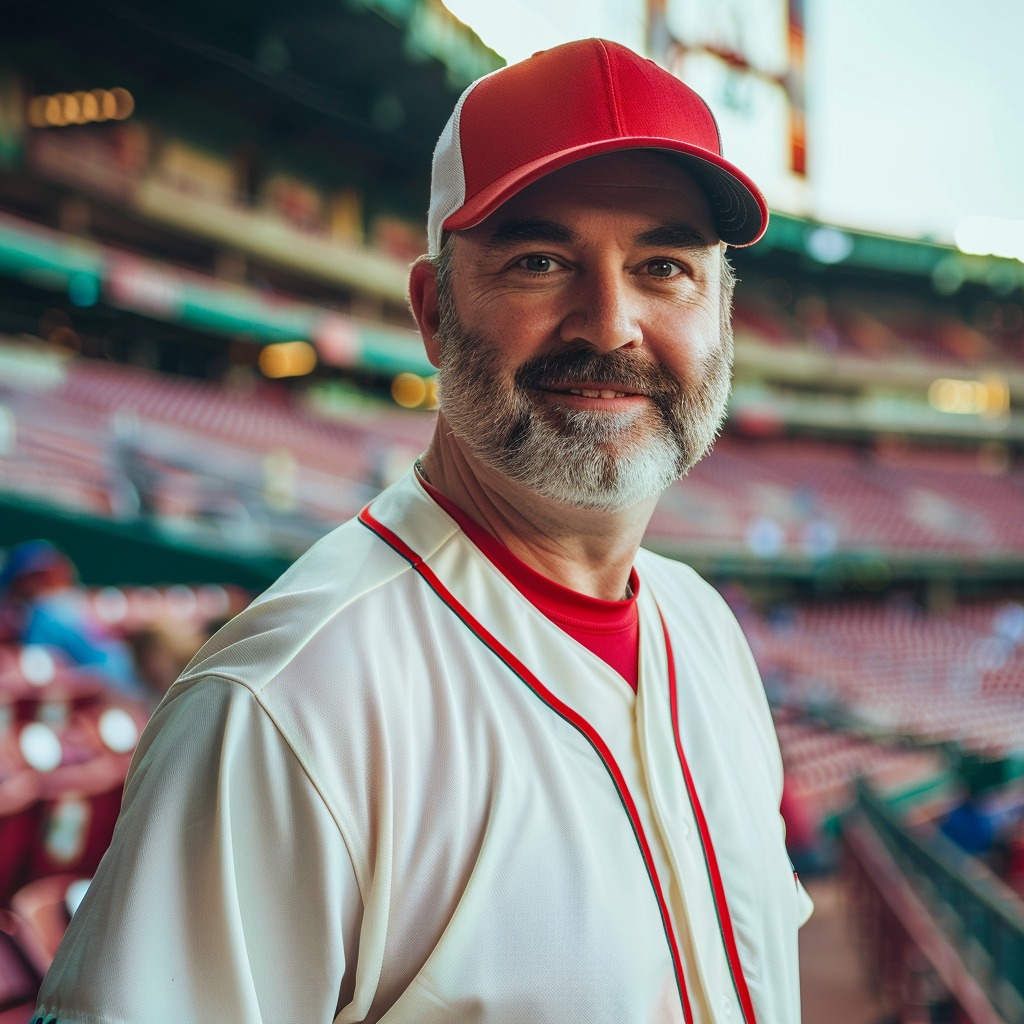
Meet Daniel Anderson, the heart and soul behind Baseball Pro Picks. At 49, Daniel’s life has revolved around baseball, a passion that’s as strong today as it was when he first fell in love with the game. Living in the USA, Daniel has dedicated countless hours to watching, analyzing, and understanding every pitch, hit, and home run, making almost no game missed. His deep-rooted love for the sport is matched only by his commitment to sharing insightful, expert analysis with fellow baseball enthusiasts. With decades of experience and a keen eye for the game’s nuances, Daniel brings a unique perspective that enriches Baseball Pro Picks. Trust Daniel to guide you through the intricacies of baseball with the authority and trustworthiness of a true aficionado.



